3 lessons for the soul from Surah Al-Fil (The Elephant)
Powerful lessons from Surah Al-Fil (The Elephant)
Introduction
In his book, Sheikh Ahmed Saad Al-Azhari describes the glorious Quran as the light and everlasting miracle of this community. It remains as fresh as it was revealed to Prophet Muhammad s.a.w. to inspire hearts and minds, guide the steps of humanity and strengthen believers’ trust in its authenticity and divinity.” [1]
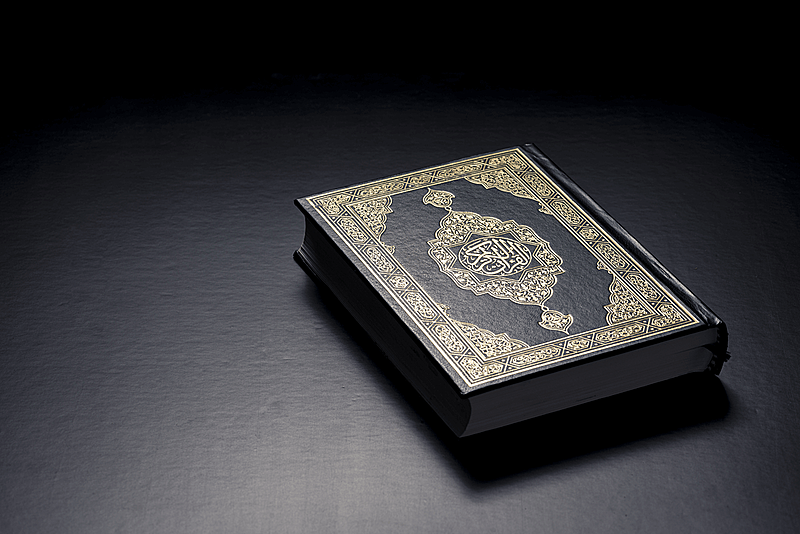
Surah Al-Fil (The Elephant) is the 105th chapter in the Quran with just five short verses. It is among the earliest surah revealed in Makkah; thus, the surah is categorised as “Makkiyah” (Meccan). A significance of Makkiyah surahs is that the chapters are characteristically short, and the nature of its verses are concise. The simplicity of the Makkiyah surahs is to attract people’s attention and to ease readers.
Scholars of Tafsir (Quranic exegesis) assert that Makkiyah surahs though they are succinct, carry strong messages with a stern tone to audiences. Typically, discussions within Makkiyah surahs touch on the majesty of Allah s.w.t, His Oneness and matters pertaining to the Aqidah (creed) as well as events on the day of judgement. Among other characteristics is that Makkiyah surahs tell stories and episodes of past communities. The polytheists of Makkah, the earliest audience whom Prophet Muhammad s.a.w. preached to, and everyone who reads these surahs would be able to relate to the stories and contemplate them.
Indeed, the Quran serves as guidance, especially for those who reflect upon it. The miraculous chapters and verses in the Quran that were revealed to Prophet Muhammad s.a.w are not merely about Islamic jurisprudential matters. They contain impactful lessons for the soul as well.
This article explores lessons from Surah al-Fil (The Elephant).
Lesson one: Makkah is a blessed land
The 105th chapter in the Quran highlights how Allah s.w.t safeguards the city of Makkah from an evil tyrant who wishes to bring harm to the land. This is proof that Allah’s house of worship, the Kaabah, will always be under his protection. It also illustrated His promise to Prophet Ibrahim a.s. to protect Makkah as it is the beloved land of Allah and His prophets a.s.
While standing at a location in al-Hazwarah (a place in Makkah), Rasulullah s.a.w. said:
وَاللَّهِ إِنَّكِ لَخَيْرُ أَرْضِ اللَّهِ وَأَحَبُّ أَرْضِ اللَّهِ إِلَيَّ وَاللَّهِ لَوْلاَ أَنِّي أُخْرِجْتُ مِنْكِ مَا خَرَجْتُ
“By Allah, you are the best land of Allah and the dearest of the land of Allah to me. By Allah, had I not been expelled from you, I would never have left.”
(Sunan Ibn Majah)
Makkah is indeed a land blessed by Allah s.w.t ever since He first created heaven and earth.[2] It is the land where Prophet Muhammad s.a.w was born, grew up and received the first revelation.

It is where the Zamzam well is located which first sprang over 4000 years ago[3] and where the Kaabah was built by Prophet Ibrahim a.s. and his son Prophet Ismail a.s. Allah chose Makkah as the location of the first place of worship on earth. Makkah is known to hold many names[4] as proclaimed in the Quran such as Bakkah, Ummul Qura, Masjidil Haram and others. Imam an-Nawawi highlighted that when something is described and possesses many names, it means that it holds major significance.[5]
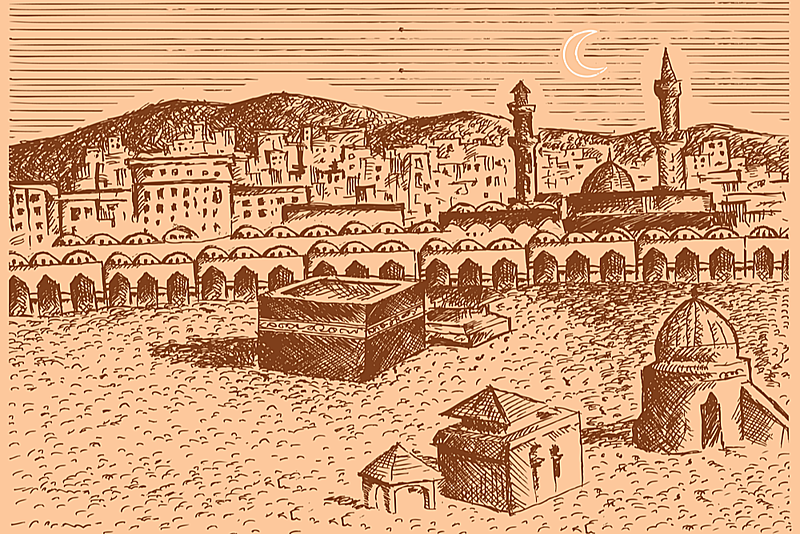
Due to its reputation and nature, it is no surprise that the city of Makkah has always been the focal point where thousands of worshippers from every walk of life come to this holy land and perform their pilgrimage. Its centrality in the Arabian Peninsula, complemented by the existence of a flowing water source - the Zamzam well - made it a perfect stop for travellers back then.
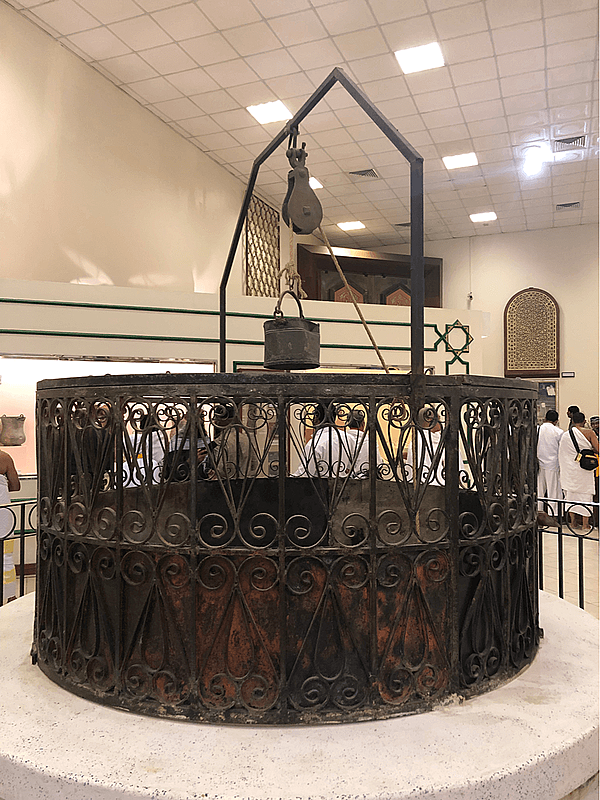
Prosperous as it is today, Makkah, as the assembled station for merchants in the past, enabled traders to generate healthy economic returns.
Essentially, the above-mentioned reality was made possible owing to the prayer (Dua) made by Prophet Ibrahim a.s, who is described as khalilullah (friend of Allah). Allah s.w.t. had instructed Prophet Ibrahim a.s. to build the Kaabah for worshippers. When Prophet Ibrahim a.s. and his son, Prophet Ismail a.s, completed building the Kaabah, he made supplication to Allah as recorded in the Quran:
وَإِذْ قَالَ إِبْرَاهِيمُ رَبِّ اجْعَلْ هَٰذَا بَلَدًا آمِنًا وَارْزُقْ أَهْلَهُ مِنَ الثَّمَرَاتِ مَنْ آمَنَ مِنْهُم بِاللَّهِ وَالْيَوْمِ الْآخِرِ ۖ قَالَ وَمَن كَفَرَ فَأُمَتِّعُهُ قَلِيلًا ثُمَّ أَضْطَرُّهُ إِلَىٰ عَذَابِ النَّارِ ۖ وَبِئْسَ الْمَصِيرُ
(And) when Ibrahim said, "My Lord, make this a secure city and provide its people with fruits (sustenance) - whoever of them believes in Allah and the Last Day." (Allah) said. "And whoever disbelieves - I will grant him enjoyment for a little; then I will force him to the punishment of the Fire, and wretched is the destination."
(Surah Al-Baqarah, 2:126)
Indeed Allah has bestowed the land of Makkah with full blessings, favours and protection.
Lesson two: Envy is a disease which will cause destruction
Surah Al-Fil talks about the annihilation of Abraha’s army from Sana’a (Yemen). Abraha served as a governor for the Abyssinian king, whose kingdom extended to Yemen. To please his king, Abraha aimed to develop his country and strengthen the kingdom’s sovereignty. He was jealous of the attention devoted to Makkah. Abraha realised that Sana’a needed a landmark like Kaabah to attract more people and convert the act of pilgrimage to his country. He intended to challenge the house of worship of Makkah.
Subsequently, under his leadership, Abraha commanded that a grand and sophisticated cathedral be constructed. He named the newly built cathedral “al-Qalis”, expecting more people to prosper his country and boost its socio-economic landscape. However, Al-Qalis failed to appeal to and was not received well by the Arabs.
Abraha’s jealousy towards Makkah grew stronger and was uncontainable. He envied the Kaabah even more and decided to destroy it so that people would no longer be able to visit it. The green-eyed Abraha prepared a large army including elephants with the purpose of instilling fear into the hearts of the people of Makkah and causing massive destruction to the Kaabah.
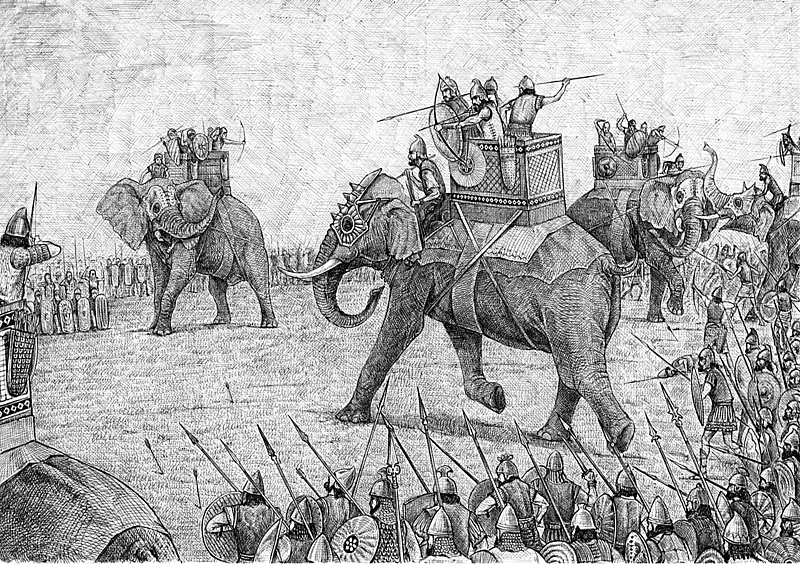
Nevertheless, in the middle of a valley near Makkah, Allah s.w.t. sent flocks of birds, each one carrying stones. The birds then began to air-raid the troops and dropped the stones, hitting every man. The stones were so harmful that they dissolved flesh and caused bursting burns to their bodies. Many died instantaneously while some managed to flee back to their country, including Abraha. Despite surviving the scene, Abraha succumbed to the tremendous pain and died.[7] Such was the wrath of Allah against the tyrant Abraha.
The Prophet s.a.w. said,
إِيَّاكُمْ وَالْحَسَدَ فَإِنَّ الْحَسَدَ يَأْكُلُ الْحَسَنَاتِ كَمَا تَأْكُلُ النَّارُ الْحَطَبَ. أَوْ قَالَ الْعُشْبَ
"Beware of envy because envy consumes (destroys) the virtues just as the fire consumes the firewood," or he said "grass."
(Sunan Abi Daud)
Envy in Arabic is known as “hasad”. It is one of the most severe diseases of the heart, as described by the Prophet s.a.w. He warned us against envy as it weakens the soul and brings harm to the envier. When Allah s.w.t created Adam a.s, He commanded all creation in heaven to bow down before his new creation as Allah elevates the status of Adam a.s. For this reason, Iblis developed envy towards Adam a.s. who was chosen by Allah s.w.t. to be the vicegerent on earth. He objected to the command in giving Adam a.s. the honour and arrogantly felt more superior to Adam a.s. As a consequence, Iblis was thrown out from heaven and turned into the most wretched creature.
Imam Mawlud describes that envy is exhibited when one desires the other person (the envied) to lose a blessing he or she has.[6] In this sense, the one who possesses envy in his heart reflects his displeasure for the divine decree - another dangerous disease of the heart. He feels that the godsend in others was wrongfully given to that person. So much so, the envious person would strive to eliminate the blessing by any means. Bit by bit without the person even noticing, envy will gradually extinguish the good deeds he or she has performed in the past and turn them into futility.
Imam Ghazali mentioned in Bidayatul Hidayah that a person with hasad (deep jealousy of others) suffers continuously in this world and the hereafter. In this world, he or she constantly feels agitated by the blessings that others attain from Allah.[8]
In his magnum opus, Imam Al-Ghazali offers us the cure to envy,
When envy compels him to say or do something bad, he should oblige himself to do the opposite. If envy compels him to speak badly of the one he envies, then he should persuade his tongue to praise and speak highly of him. If envy compels him to be arrogant towards him, he should strive to be humble and apologize to him. These are the cures for envy and they are very beneficial, although they are very bitter for the heart. Rather, the benefit is in bitter medicine.
(Ihyaʼ ‘Ulumuddīn)
Lesson three: Never underestimate the power of dua
Upon reflecting Surah Al-Fil, one may notice that the chapter signals the promise of Allah s.w.t for two of his servants. In the first lesson, it has been highlighted that the Prophet Ibrahim a.s. made a supplication to Allah s.w.t for the security of the Makkah land. Interestingly, he made a supplication that was not only for himself but it was for the general good and the unforeseen future—a prayer that encompasses lasting outcome.

The other servant whom Allah s.w.t. accepted his Dua immediately was Abdul Muttalib. He was the grandfather of Prophet Muhammad s.a.w. and was the tribe chief of Makkah then. When Abraha was approaching Makkah, Abdul Muttalib understood that it was almost pointless to fight against the Elephant army. He recognised that the threat was real, and no one would be able to stop Abraha’s cruel ambition.
Abdul Muttalib realised their condition and thus, he ordered the people of Makkah to evacuate the area and find shelter for safety. At the same time, he put his trust in Allah s.w.t. and supplicated for the protection of Makkah and Kaabah, the house of Allah. Abdul Muttalib, the chief of Makkah, pled:
Oh, my Lord, there’s nothing I can rely on except to You!
O my Lord, by your protection, prevent them from coming!
Indeed those who intend to endanger this house of Yours are your adversary,
Indeed, they are unable to oppose your authority.[9]
Eventually, Allah answered Abdul Muttalib’s call. When the elephant army was preparing to march towards Kaabah, Allah sent them flocks of birds and ordered them to destroy Abraha and his army to ruin.
The answer for supplications is just and true. Additionally, the effect of the divine reply could come beyond one’s imagination. Just like the prayer of Prophet Ibrahim a.s. in which the holy land of Makkah remains blessed by Allah till today. Most importantly, we must increase our faith in Allah when we engage in our supplication to Him. In the same vein as how Abdul Muttalib did when nothing was left for him to do except to trust Allah The Almighty.
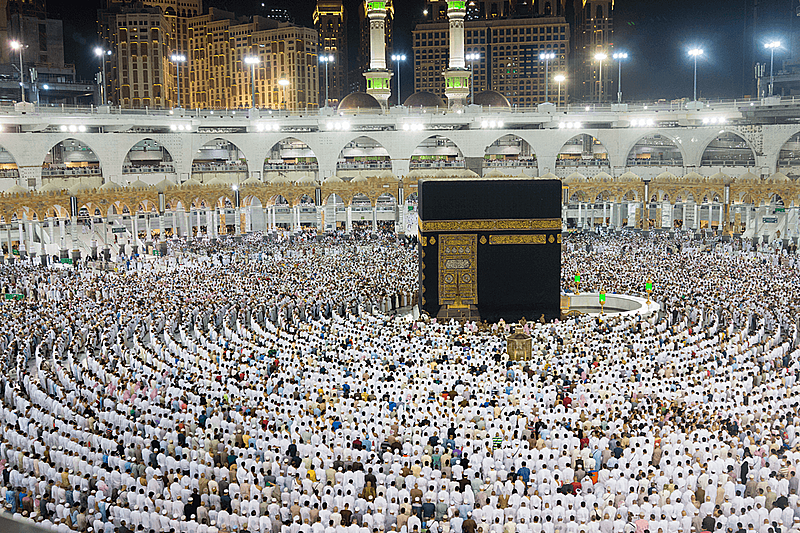
The Prophet s.a.w. said:
إِنَّ اللَّهَ حَيِيٌّ كَرِيمٌ يَسْتَحِي إِذَا رَفَعَ الرَّجُلُ إِلَيْهِ يَدَيْهِ أَنْ يَرُدَّهُمَا صِفْرًا
“Verily Allah is modest and generous. He is ashamed to turn away empty when a person raises his hands to Him.”
(Sunan At-Tirmizi)
The word “supplication” in Arabic is “Dua” (دعا, يدعو, دعاء) which denotes “calling”. The act of supplication (Dua) is direct communication with Allah s.w.t. It is regarded as the essence of ibadah (the act of worship). A person who engages in dua sincerely is the one who is aware of his position as the servant of Allah. He understands the relationship between himself and the Creator. With sincerity, the servant then affirms his faith and reliance on Allah s.w.t.
Read: https://muslim.sg/articles/the-power-of-dua-in-islam
The above-mentioned prophetic saying tells us that supplication never goes in vain, especially when it is made with sincerity. For Allah is all Hearing, and He is very near to his pleading servants.
وَإِذَا سَأَلَكَ عِبَادِى عَنِّى فَإِنِّى قَرِيبٌ ۖ أُجِيبُ دَعْوَةَ ٱلدَّاعِ إِذَا دَعَانِ ۖ فَلْيَسْتَجِيبُوا۟ لِى وَلْيُؤْمِنُوا۟ بِى لَعَلَّهُمْ يَرْشُدُونَ
When My servants ask you (O Prophet) about Me: I am truly near. I respond to one’s prayer when they call upon Me. So let them respond (with obedience) to Me and believe in Me, perhaps they will be guided (to the Right Way).
(Surah Al-Baqarah, 2:186)
He loves to listen to the supplications of His servant and is most inclined to grant their prayers.
وَقَالَ رَبُّكُمُ ٱدْعُونِىٓ أَسْتَجِبْ لَكُمْ
Your Lord has proclaimed, “Call upon Me, I will respond to you.
(Surah Ghafir, 40:60)
In another hadith, the Prophet s.a.w affirmed that Allah s.w.t. replies to his servants in one of three ways: (1) Allah will give him an answer instantly. (2) He will store what the servant wishes in the next world, or (3) Allah will turn away from him an equivalent amount of evil.[10]
We need to believe that Allah s.w.t. knows what is best for his servant. In his aphorism, Imam Ibn ‘Ata’illah once said:
“Don't let the delay of God's gift to you (answer), despite your persistent appeal, fall you in despair. Because He guarantees the fulfilment of prayer according to His choice, not according to your choice; at the time he wants, not at the time you want.”[11]
And in another aphorism:
“Don't let the non-occurrence of something promised, even if the time for its occurrence was specified, make you suspicious of the promise, as doing so may strike a blow to your insight and put out the light of your inner self.”[12]
Imam Ibn ‘Ata’illah explained that insisting on getting a response from our prayers is a sign of our incapability to understand the way Allah responds. Expressing frustration and impatience over the delay is a form of inflicting injustice to ourselves. He asserted that delay in God’s answer is an indication of His benevolence; thus, let Allah decide on the time and manner of the answer.[13]
And Allah knows best.
[1] Ahmed Saad Al-Azhari Al-Hasani, Contemplating the Qur’an, Ihsan Education Ltd., Britain, 2016.
[2] Al- Bukhari, https://sunnah.com/bukhari:3189, https://sunnah.com/bukhari:1834, Muslim, https://sunnah.com/muslim:1353a, and An-Nasa’i, https://sunnah.com/nasai:2874.
[3] Dania Akkawi, “How Come Zamzam’s Well is Never Depleted?”, Egypt Today, 16 Aug 2018,
https://www.egypttoday.com/Article/1/56092/How-come-Zamzam%E2%80%99s-well-is-never-depleted (Accessed on 2 June 2021). Also read: Nada Hameed, “The Well of Zamzam is a Lasting Miracle”, Arab News, 1 August 2020, https://www.arabnews.com/node/1712901/saudi-arabia (Accessed on 2 June 2021)
[4] Mentioned in the Quran as Makkah – 48:24, Bakkah – 3:96, Ummul Quran – 6:92 & 42:7, al-Balad – 90:1-2, al-Baldah – 27:91, al-Baladul Amin – 95:3, Haraman Amina – 28:57, Ma’ad – 28:85, al-Qaryah – 16:112 and al-Masjidilharam – 9:28
[5] Al-Nawawi, “Tahdzib al-Asma’ wa al-Lughat”, cited by Abdul Basit Abdul Rahman in Makkah Al-Mukarramah – Kelebihan & Sejarah, Telaga Biru, Kuala Lumpur, 2015.
[6] Hamza Yusuf, “Envy” in, Purification of the Heart, Sandala Inc, United States of America, 2012, pg. 29.
[7] HAMKA, “Surat al-Fiil”, in Tafsir Al-Azhar Juzu’ 30, Pustaka Nasional, Singapore, 1988.
[8] Abu Hamid bin Muhammad al-Ghazali, “al-Qaul fi Maa’si al-Qalb” in Bidayatul Hidayah, Darussalam li-at-Tibaa’ah wa-al-Nashri wa-al-Tauzii’ wa-al-Tarjamah, Cairo, Egypt, 2010
[9] HAMKA, “Surat al-Fiil”, in Tafsir Al-Azhar Juzu’ 30, Pustaka Nasional, Singapore, 1988.
[10] Mishkat al-Masabih, https://sunnah.com/mishkat:2259
[11] Ibn ‘Ata’illah, The Book of Aphorism, Islamic Book Trust, 2010
[12] Ibid
[13] Ibid

